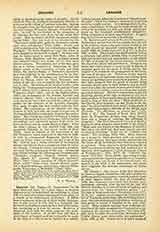

Le Camus, EMILE-PAUL-CONSTANT-ANGE, preacher, theologian, scripturist, Bishop of La Rochelle and Saintes, b. at Paraza, France, August 24, 1839; d. at Malvisade, near Castelnaudary, France, September 28, 1906. He made his preparatory studies at Carcassonne, and then entered the theological seminary of St-Sulpice at Paris. In 1861 he went to Rome, where he received his doctorate in theology, and in the following year, December 20, 1862, he was ordained priest at Carcassonne, France. He at once revealed remarkable oratorical powers, and in 1867 he was invited to preach the Lenten sermons at Avignon, for which he was made’ honorary canon. This same honor was again conferred upon him somewhat later by Msgr. Las Cazes, Bishop of Constantine (Algeria), who also chose Le Camus as his theologian at the Vatican Council. In 1875 Le Camus was appointed assistant director of the Dominican school at Sorer, France, but soon after he became head of the new school of St. Francis de Sales, which he established at Castelnaudary. Here he labored until 1887, when he resigned his position as director in order to devote himself exclusively to the study of the New Testament. To equip himself properly for this study, and especially to study the topography of the Holy Land, he made his first journey to the East in the following year (1888). This was followed by several other visits, and the results of his travels and studies were published at various times. While pursuing his Scriptural studies, Le Camus also found time to preach several ecclesiastical retreats at Lyons, Montpellier, Paris, and Rome. In 1897 he was elected theological canon of Carcassonne, and on April 6, 1901, he received his appointment as Bishop of La Rochelle and Saintes. He was consecrated at Carcassonne, July 2, 1901, by Cardinal Lecot. Even as bishop, Le Camus continued his work on the New Testament, and also published several letters and pamphlets on ecclesiastical topics.
His more important works are: “La Vie de Notre-Seigneur Jesus-Christ”, 3 vols., 6th ed., 1901 (translated into English, German, and Italian); “Voyages aux Sept Eglises de l’Apocalypse“; “Notre Voyage aux Pays Bibliques”, 3 vols., 1889-90; “L’Oeuvre des Apotres”, 3 vols., 1905; “Les Enfants de Nazareth“; “Vraie et Fausse Exegese”; “Lettre sur la Formation Ecclesiastique des Seminaristes”; “Lettre reglant la reorganization des etudes ecclesiastiques”; “Memoire addresse a MM. les deputes membres de la Commission des Congregations”.
F. X. E. ALBERT

